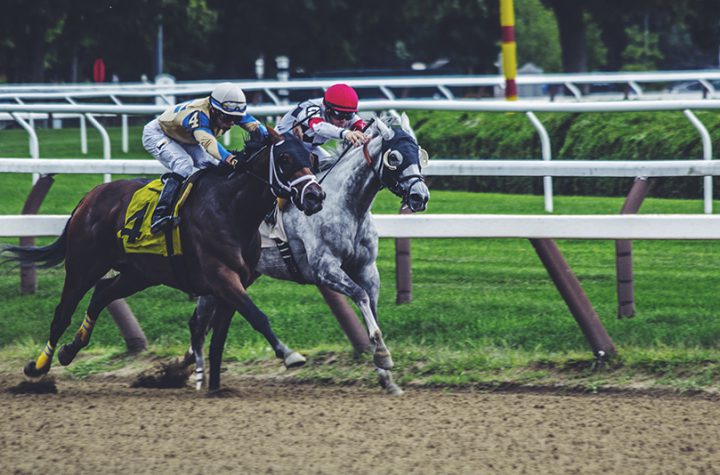
Barstool Sports, the high-profile, controversial, and fast-growing sports media company, may soon have a new owner: A low-profile casino operator.
Sources say The Chernin Group, which currently owns Barstool, is in advanced talks to sell a majority stake in the company to Penn National Gaming, a publicly traded, regional gambling company that operates 41 properties in 19 states.
Barstool was last valued at more than $100 million, but a potential purchase price could be much higher, and might create the biggest media-gambling tie-up in the US since the Supreme Court legalized sports betting in 2018.
Recode has asked representatives from Barstool, The Chernin Group, and Penn National for comment.
The Big Lead had previously reported that Barstool was looking at a deal to sell itself to a gambling company.
The deal would tie Barstool, a well-known company with a passionate audience, to a casino company you may have never heard of, which is part of the logic of the tie-up: Industry observers expect Penn National, which operates properties like the Hollywood Casino in Bangor, Maine, and the Greektown Casino-Hotel in Detroit, to adopt the Barstool brand for at least some of its operations.
The most logical use of Barstools brand would be to help Penn National move into online sports betting, which the Supreme Court blessed on a state-by-state basis in May 2018.
Since then, a host of media companies have tried to capitalize on what they think will be a sports betting boom by creating their own betting-centric properties, as well as by making deals with traditional casinos like Caesars and online betting companies like DraftKings and FanDuel. (Vox Media, which owns this site, has a deal between DraftKings and Voxs SB Nation sports property.)
Barstool already has a Barstool Bets site, which publishes sports-betting stories and videos, and runs free sports-betting games; the company also has deals to direct its users to betting operations like MGM Resorts.
Until now, the biggest media and sports betting deal weve seen in the US has been Fox Corps purchase of a little less than 5 percent of The Stars Group, an online gambling company, for $236 million last year; the two companies launched a Fox-branded sports betting unit a few months later.
Other media transactions in recent years have been driven by a desire to gain scale to fight against tech companies (like AT&Ts purchase of Time Warner, and Disneys purchase of much of Fox) or because of fire sales of startups that had planned to grow alongside Facebook and ended up running out of money (like Mashable and Mic). But Barstool is different: It is growing quickly, has a passionate audience that likes its off-color approach to covering sports and pop culture, and doesnt appear to have cash flow problems.
Barstool founder Dave Portnoy, who is still the companys best-known talent, sold a majority stake in his company to The Chernin Group for a reported $10 million in 2016; in 2018, Chernin put another $15 million into the company at a reported valuation of more than $100 million.
The deal could be a windfall for both Portnoy and Chernin. And it could also solve a problem for Chernin, a media investment and holding group run by former Rupert Murdoch lieutenant Peter Chernin. Barstool is beloved by its audience, but it is reviled by lots of media commentators, who grimace at the publishers frat-boy persona. Barstool pits itself against everyone from the NFL to ESPN to people who have a problem with stories like Josh Duhamel Compared His New Smokeshow Girlfriend Audra Mari to Patrick Mahomes, which is currently featured on the sites homepage.
Portnoy himself is a controversial face for the company. Last summer, via Twitter, he threatened to fire any employee who talked to union organizers. That prompted an investigation by the National Labor Relations Board, which is still open.
That brand has created problems for Chernins executives who have grown weary of defending their investment in Barstool. (For the record, their usual defense is that people who criticize Barstool probably dont read or watch what Barstool makes, and what the company does is similar to Howard Sterns show.)
It may also have limited possible acquirers for the company; conventional wisdom is that media companies that want to do business with pro sports leagues like the NFL wouldnt be able to buy the Barstool for fear of offending their current or future partners. Or even offending their own employees: In 2017, ESPN launched a Barstool-branded chat show, then canceled it after a single episode after blowback from the sports programmers on-air talent. I erred in assuming we could distance our efforts from the Barstool site and its content, former ESPN President John Skipper wrote at the time.





More Stories
US president-elect Joe Biden has listed four priorities for his forthcoming presidency. These include Covid-19, economic recovery, racial equity and climate change.
What are the restrictions within Victoria and the border closures with NSW and Queensland? How far can I travel, and how many people can I have over at my house? Untangle Australia’s Covid-19 laws and guidelines with our guide
Apple has suspended new business with supplier Pegatron after the Taiwan-based original equipment manufacturer misclassified student workers. Apple also said Pegatron broke its Code of Conduct for suppliers. In a statement provided to Bloomberg, Apple said, “…